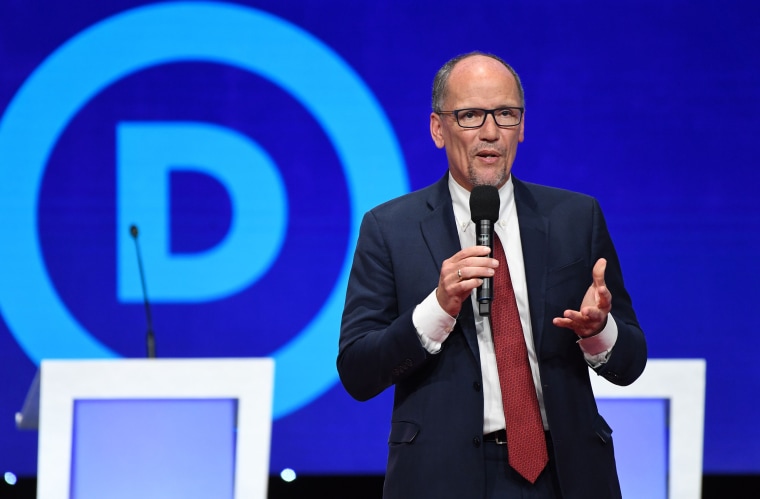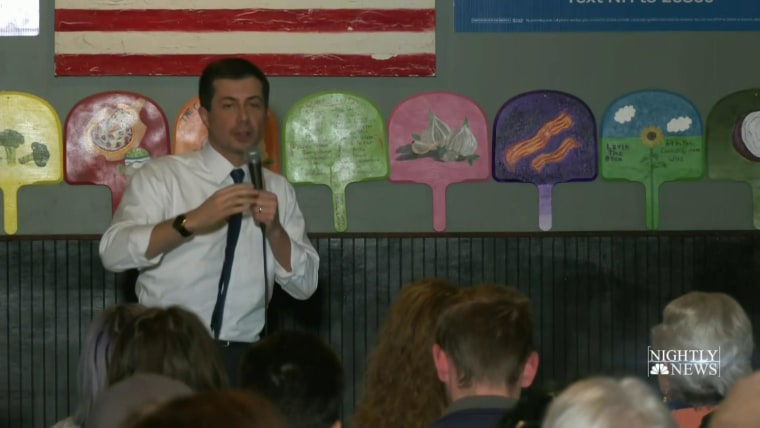Democratic National Committee Chair Tom Perez is calling on Iowa Democratic officials to immediately recanvass Monday's caucus vote after days of uncertainty and growing concerns about the accuracy of the results.
"Enough is enough," Perez said in a tweet. "In light of the problems that have emerged in the implementation of the delegate selection plan and in order to assure public confidence in the results, I am calling on the Iowa Democratic Party to immediately begin a recanvass," he said.
A recanvass is essentially a double-checking of the vote. Iowa officials would have to hand audit the caucus worksheets and reporting forms to ensure that they were correctly calculated and reported.
As of Thursday morning, former South Bend, Indiana Mayor Pete Buttigieg was clinging to the narrowest of leads in Iowa over Sen. Bernie Sanders, I-Vt., on Thursday, with 97 percent of the caucus vote released.
Buttigieg was at 26.2 percent and Sanders had 26 percent, with Sen. Elizabeth Warren, D-Mass., running behind the pair of leaders at 18.2 percent. Former Vice President Joe Biden had 15.8 percent, Sen. Amy Klobuchar, D-Minn., at 12.2 percent and other candidates were in low single digits.
Iowa Democratic caucus results are not actual votes cast. The percentages, based on partial returns of the estimated number of state convention delegates won by each candidate through the caucus process, are known as state delegate equivalents, or SDEs.
The totals were put out by the Iowa Democratic Party over the past two days after chaos over the caucuses on Monday night. More data may be released on Thursday.
NBC News has not called a winner in the first-in-the-nation contest.
In addition to the estimates of convention delegates, the Iowa Democratic Party also released two other numbers:
In voters' initial candidate preference at the caucuses on Monday night, Sanders had 24.7 percent, or 42,672 votes, and Buttigieg took 21.3 percent, or 36,718 votes.
In voters' reallocated preference, Sanders had 26.5 percent, or 44,753 votes, and Buttigieg had 25 percent, or 42,235 votes. The reallocated preference is the raw tally taken after the caucus process known as realignment. If a caucusgoer's initial candidate preference did not receive enough support to meet the precinct location's viability threshold (15 percent in most caucus locations), the caucusgoer is allowed to shift his or her support — or realign — to another candidate who did attain viability.
Results from the contest held Monday were delayed by what organizers said was a problem with a smartphone app. Final tallies had been expected that evening, but instead, partial results were released Tuesday and the remainder Wednesday.
Nevada's Democratic Party, which had planned to use the app for its Feb. 22 caucus, said a day after the fiasco in Iowa that it would not use the app after all. The state's Democratic Party said Tuesday that it had previously developed backup plans for its reporting systems and was in the process of "evaluating the best path forward."
Cybersecurity experts who examined a public version of the smartphone app told NBC News it contained technical and design flaws and appeared to have been rushed into use.
Caucusgoers gathered Monday at nearly 1,700 sites across Iowa to tally support for their preferred candidates. As the delay stretched on into Tuesday, candidates came out to give speeches that sounded a lot like declarations of victory despite no numbers to support or refute them.
The state has 41 pledged delegates up for grabs, and the high-stakes contest traditionally plays a major role in determining who is a legitimate contender in the race.
Even with only a little more than 90 percent reporting in Iowa, Buttigieg on Wednesday night continued to tout the caucus as a win, telling a New York fundraiser that "we remain in the lead."
"There is just no question that Monday in Iowa represents an astonishing victory for our vision, for our candidacy and for this country," the former South Bend, Indiana, mayor said according to a pool report.


